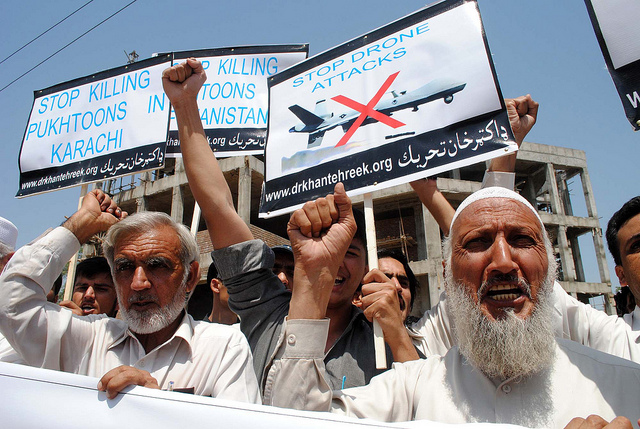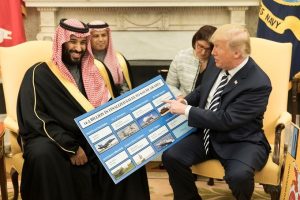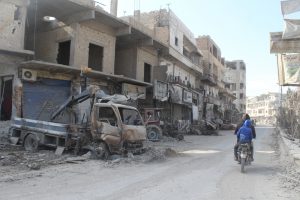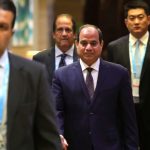by Tyler Cullis
Earlier this month the UN Special Rapporteur for Counter-Terrorism and Human Rights, Ben Emmerson, released his annual report to the UN Human Rights Council (the “Emmerson report”). He had been charged with determining best practices for States to respect human rights while engaging in counter-terrorism operations and highlighting human rights violations when and where they occurred. While these two elements were fully on display in the report, the Special Rapporteur left us both with more questions than answers and made an urgent appeal that the legal uncertainties surrounding counter-terrorism efforts (especially those of the United States) be resolved so that the rule of law can take root and be observed.
Much attention has been given to the Emmerson report’s determination that States have an obligation to undertake an impartial investigation into civilian deaths, as a matter of human rights and humanitarian law, when those deaths were not expected. The report sifts through 30 cases, most involving the United States, where civilian deaths have been reliably alleged and where the dual duties of investigation and transparency have thus been triggered. Whatever the merits of this conclusion (and I have doubts as to whether the law of armed conflict contains within it a legal requirement for States to undertake investigation into civilian deaths), it is an important one and will go a long way to granting legal advocates another argument to force the Obama administration to be more transparent over its drone program and the civilian deaths that are alleged to have resulted in specific instances. It remains a disconcerting feature of the post-September 11 world that President Barack Obama has not only the power to determine who is a target and to strike at that target, but to do so without any substantive oversight.
But perhaps the most consequential feature of the Emmerson report is its outline of the legal uncertainties that surround not just the US’ drone program, but also its entire “War on Terror.” The lack of consensus on the law applicable to the US conflict with al-Qaeda — whether it is an armed conflict triggering the laws of war or whether it fails to meet the requisite threshold for armed conflict and instead remains a captive of human rights law — has permitted the US to define the rules of the game for itself. In some ways, Bush administration lawyers, who claimed that the traditional way of doing business was rendered an anachronism thanks to the threat posed by transnational terror groups like al-Qaeda and who were rightly derided for the aggressiveness with which they upended basic principles of international law, have won the day. What once seemed like settled law is no longer, and the Emmerson report is a measure of how much we’ve allowed consecutive US administrations to set the parameters of the debate.
Some major areas of international law that remain or have become ambiguous (thanks to US practice) as outlined in the Emmerson report, are:
- Is the United States in an armed conflict with al-Qaeda? This question is central to determining both the extent of US presidential authority (such as whether the White House has the power to include US citizens on a “kill list”) and what constraints are placed upon US activities abroad.
- If the US is in an armed conflict with al-Qaeda, are members of al-Qaeda to be regarded as combatants, civilians, or some third category of persons as the International Committee of the Red Cross has advocated? How we define a member of al-Qaeda under the laws of war determines the conditions under which the President can use force against them. If regarded as combatants, for instance, then all members of al-Qaeda and their affiliates would be legitimate targets of the US, and criticism over drone operations would lose much of its force.
- Is the “unwilling or unable” test that the United States has put forward to justify its intervention in Pakistan, Yemen, and Somalia a new exception to the traditional prohibition on the use of force in the territory of another State? If so, what precedential value does this set for other States, and how does it undo the constraints the UN Charter placed on recourse to war?
These are critical questions. Prior to September 11 and for some time thereafter, the answers were clear. Many did not believe the United States could regard itself as in an armed conflict with a transnational terror group. Many believed that members of al-Qaeda should be regarded as civilians, targetable only for self-defense purposes or when directly participating in hostilities against the United States. Few were attuned to the argument that the prohibition on the use of force contained an exception for when a State proved “unwilling or unable” to end cross-border attacks from an insurgent group. It was only over time (and largely thanks to US practice) that the question arose as to whether the law was not as clear, coherent, and complete as international legal practitioners had believed.
Quite adeptly, the Emmerson report centers this legal uncertainty and urges States, legal scholars and practitioners, and human rights groups to build consensus on these questions. Absent a global consensus, the United States is granted de facto authority to lead by the sheer force of example. And as we’ve seen for more than a decade now, that example has proven to be an exceptionally troubling one.
Photo: A protest in Peshawar, Pakistan against drone strikes on Sept. 13, 2012. Credit: Ashfaq Yusufzai/IPS.






Interesting post, questioning the ongoing war[s] the U.S. is engaged in today. Considering that the U.S. is the sole “Super power” of the planet, along with the “power corrupts” part, who’s to stop or bring to light, the laws of right or wrong, as well as either stopping such, or even bringing those up on charges who have broken those laws? Considering the corruption that has center stage in world governments at the moment, including the U.S., (publicly al Qaeda is the enemy, but the C.I.A. backs it), this report, like others before and no doubt future ones, will be filed away somewhere.